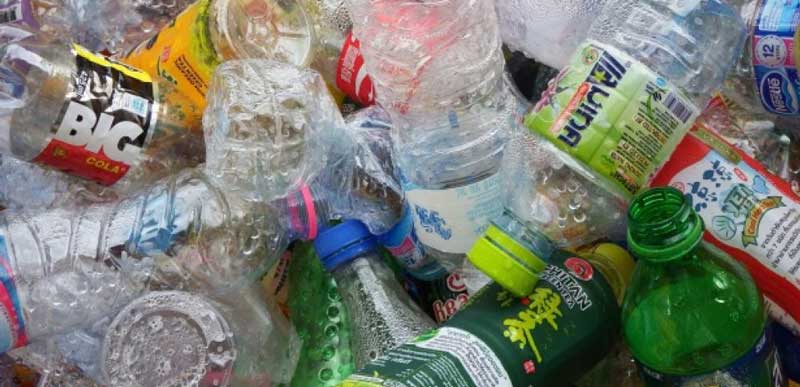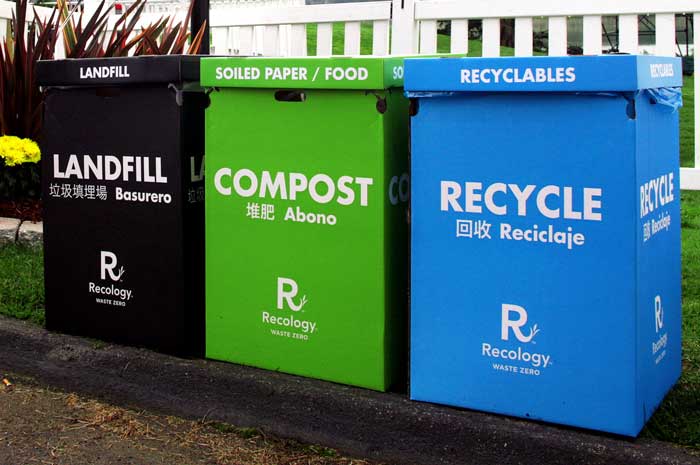8 Ways to Turn Your Event into an Eco-Friendly One
As a nation, we are becoming more aware of the damage we are causing on the planet, and now we are trying to alter how we go about our day to day lives to extend our planet's life.
The events industry, especially festivals, has been badly criticized for its impact on the environment, so we are here to provide some tips on how to run a more eco-friendly event.
Environmental impact of events
From plastic to transportation, the events industry has historically been known to abuse environmental factors.
#1 Plastics
As it is cheap to use, easy to transport and quick to get your hands on, plastic is often used for many events. Water bottles, packaging, straws, etc. in the end all end up in our ocean or our surrounding environment.
Not only affecting how our planet looks, but killing animals and affecting other ecosystems we need.
#2 Transportation
From those traveling to the event to the equipment and hospitality arriving at the location, the CO2 emissions that are produced from transportation can have a significant impact on the environment.
It's called a carbon footprint and by decreasing our travel times and distance, we can substantially reduce our numbers.
An easy solution to this is purchasing event supplies and working with vendors that are all local. This will decrease their travel times as well as support your community.

Becoming more environmentally friendly
There are numerous ways in which you can host an event that is more conscious of its environmental impact and is kinder to the planet.
1. Choose a green location
Where you host your event can have a significant impact on the environment. We recommended doing some in-depth research to find venues that are green-minded and are actively trying to improve the environment.
If you have a location in mind to host your event in, do a quick check on its overall sustainability performance. If it isn’t looking great, then it may be best to reconsider the location.
When choosing a venue, look out for those that are LEED (Leadership in Energy and Environmental Design) certified.

If they are, it means that the venue follows a strict programme which ensures the systems and programs throughout the building are highly efficient and create minimal waste.
2. Think about transportation
If your event is going to be hosting people from around the world, how far away is the venue from the airport?
How close are the hotels?
You want to try to keep the travel distance to a minimum for your attendees, guest speakers, and those who will help you to organize the event.
 As a general rule, it is better to make use of public transportation rather than using multiple cars.
As a general rule, it is better to make use of public transportation rather than using multiple cars.
Group transportation could solve ensuring travel emissions are reduced.
If you have multiple people coming from the airport, maybe arrange a coach to transport them to the venue?
By being cautious and more aware of distance and transportation, you can reduce the event’s carbon footprint.
3. Remove any potential hazards
Going paperless is a brilliant way to improve your impact on the environment. Any invitations can be sent by email, or you can set up a digital ticketing service.
Event apps can also be a handy tool while organizing an event because you can provide essential information to your attendees.
Here are other ways you can cut your plastic usage:
- Do not offer individually wrapped items or water bottles to your attendees. Instead, provide refill stations and encourage people to bring reusable water bottles.
- Avoid using and/or offering straws if unnecessary. Sell reusable ones at a merchandise stand.
- Use cardboard as your structure for plates, boxes, boats etc. if providing food.
- Offer reusable bags for shoppers. This can also be branded and used as merchandise.
4. Hire the right partners
When choosing who will work with you on the event, check they have the same interest in helping the environment as you do.
From the event crew to the catering team, do a bit of research into the company and see if they are environmentally conscious.
5. Go green in your event planning
While it looks pretty to have folders and pen pads to organise your event, that amount of paper isn’t beneficial to the environment. Instead, go digital and organize your event on a laptop or computer.
Not only will this save you time, but your notes will also be neater, and there is no paper involved.
Also, if you need to meet with other members who are organizing the event, rather than all travelling to meet up, why not link up virtually?
Having a video chat can reduce the carbon footprint significantly.
6. Always recycle
This should go without saying, but recycling at your event is a must.
Also, offering goods that are made from recycled material is brilliant as it not only helps the environment, but it also shows your attendees you care about the environment.

7. Offer sustainable food and drink
An easy way to do this is to choose produce that is sourced locally, offer meatless meals and request items such as condiments are bought in bulk (this avoids individually wrapped items and decreases travel time).
8. Reduce energy consumption
Energy consumption levels can significantly affect the environment, so by reducing how much is used at your event can help the planet and make your event greener.
Lighting can consume large quantities of energy, so if you can, keep this to a minimum.
Simple changes like keeping lights off in rooms that aren’t in use and dimming lights when they aren’t necessarily needed can make a huge difference.
The same rules apply to the use of heating or air conditioning.
We hope that you now have a better understanding of how to make your event greener and benefit the environment as much as possible.
Going forward, we hope to see the events industry become greener and continue to adjust to help the planet.
Author: Shauna Davies
With a degree in Business Management, Shauna has been writing in the events and business industry for several years with extensive knowledge in this niche.






